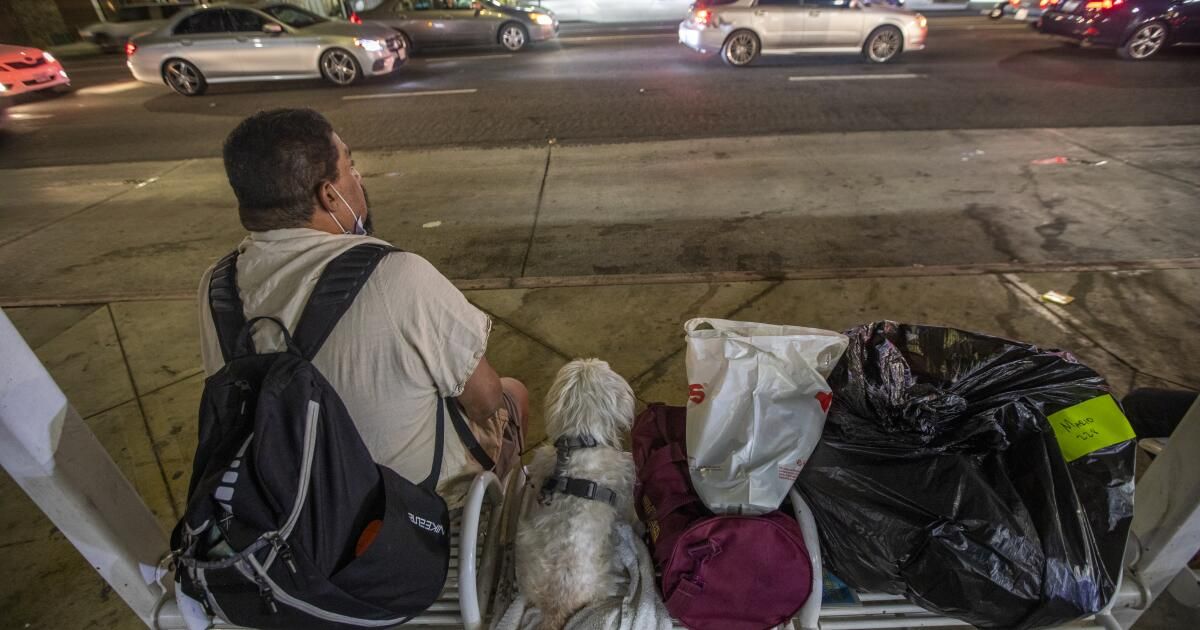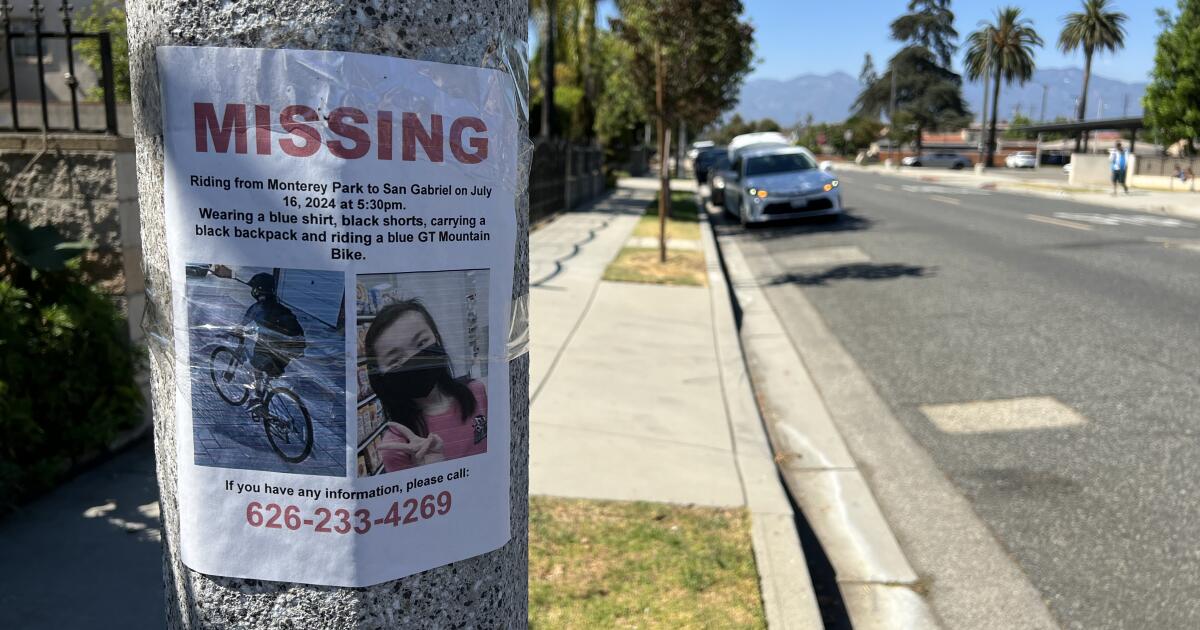Long Beach will begin citing and possibly arresting homeless people as part of the city's effort to crack down on its most problematic encampments.
Those actions will be used as a last resort to remove encampments that are known to be “hot spots,” Long Beach Deputy City Manager Teresa Chandler announced in a memo this week.
“This enforcement mechanism will be used as an additional tool when appropriate,” Chandler said, “while continuing to apply a human-centered approach to addressing homelessness.”
City officials said the plan is to identify encampments that pose a public threat or block access to libraries, parks and beaches. It will also focus on homeless encampments where people have repeatedly refused to accept services or shelter.
In the city's latest homeless count, 3,376 homeless people were counted, down 2.1% from 3,447 in 2023. At least 70% of the population lives outdoors.
Over the past year, public works crews have responded to 3,200 encampments in Long Beach, according to the memo. But the cost of fines and the length of jail time for people who rack up fines were not disclosed.
Chandler did not respond to a request for comment.
Still, the city plans to show restraint.
“Enforcement of the City’s anti-camping ordinance through the issuance of a misdemeanor citation will generally be used after multiple outreach attempts and at the team’s discretion, as appropriate,” the memo said.
The city's crackdown comes more than a month after Gov. Gavin Newsom issued a executive order ordering state agencies to clear encampments from state property and urging counties and cities to do the same.
Everything is the result of the Supreme Court ruling In June, such counties and cities can enforce laws restricting homeless people from sleeping or camping in public spaces, even if adequate shelter is not available.
The ruling was hailed as a victory by leaders in many Western cities, where the majority of the nation’s homeless people live. But for homeless advocates, it was a devastating blow following rulings by the 9th Circuit Court of Appeals that found it unconstitutional to enforce anti-camping laws against people who had no homes or places to sleep.
Advocates feared that enforcing anti-camping ordinances would only lead to fines and arrests and make it harder to combat homelessness.
Long Beach officials acknowledge that enforcing their anti-camping laws will likely have some unfortunate consequences.
“Fines associated with citations can have destabilizing effects on people who already have extremely low incomes,” the memo said. “The experience of receiving fines and forced displacement can result in material and psychological damage, loss of belongings such as documentation, worsening of mental and physical health complications, and other traumas.”
City officials said enforcement could cause people to move to other parts of the city or to neighboring towns. It will also create additional challenges for outreach teams that rely on maintaining connections with homeless people.
Still, city officials say they are doing everything they can to address the situation as humanely as possible, including building a new homeless shelter and more housing units.
The memo calls on the city to increase funding for motel vouchers and permanent housing to provide people with a route out of the shelter system, as well as increase staffing at the Office of Homeless Services and other departments that work with the homeless population.
“It is important to remember that this approach builds on a strong foundation of existing work,” the memo said, “and that the city’s capacity to address homelessness has grown dramatically in recent years.”
The city plans to review the effectiveness and impact of its enforcement efforts in six months.












